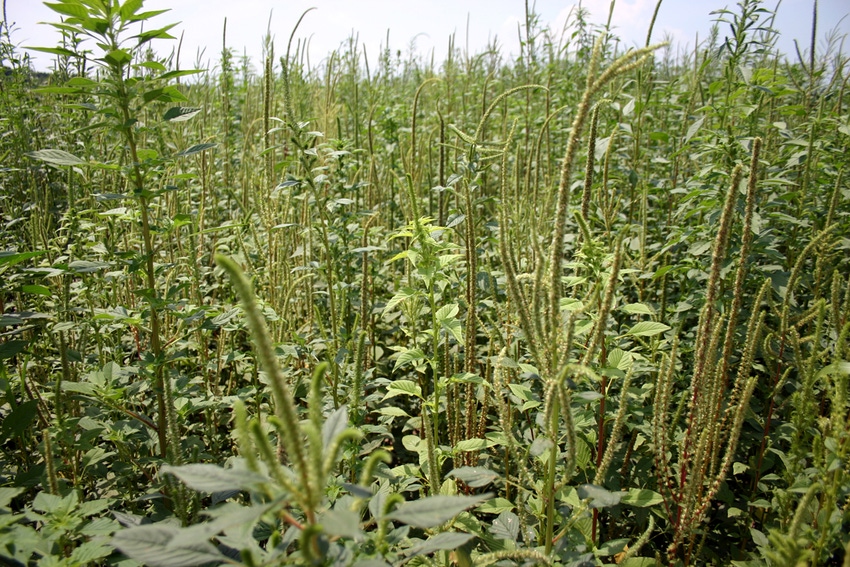July 8, 2011

I read a recent article written about the “PigPosium” held last November in Arkansas. I had never seen anything like it — 800 or so folks attending a meeting on one weed. Everyone left the meeting charged up full of vim, vam and vigor to go “whoop” this weed.
Somewhere between then and now the wheels came off. Ken Smith was quoted in the meeting saying, “No, I don’t think they’re (pigweed) going to take over the world and we’re not going to let them take over Arkansas under our watch.”
Those guys are working extremely hard, but as an industry we are not giving them much support. They are delivering the message and nobody is listening. I have sure found out that I do not have any influence either.
Folks, unless we can make some dramatic changes, pigweeds are going to take over Arkansas. If this year does not get your attention, I give up!
I do not have all the answers for the pigweed problem. We did not have to find the hard answers in the early 1990s. Roundup Ready came along and it WAS the answer.
However, there are a couple of statements I continue to hear that we have to get past. The first one is, “I just don’t have the problem yet.” Two years I was constantly told, “We have a rice rotation, so I am just not worried about pigweeds.” I have probably had more pigweed calls this year from the heart of rice country than anywhere else. If you are farming soybeans or cotton in Arkansas, you have the problem whether or not it is in a particular field yet.
While I do not have all the answers, I do have a good handle on some things that will not work and some things that are going to have to happen if we are to keep the pigweeds from winning. It has to start with respecting the enemy.
I am constantly told, “I just saw one here and there for the first time last year and now look!” If we have not figured out by now they will overpower you with numbers, I do not know how else to say it.
My worst fear from five years ago has happened: that is we would not be willing to change until the pigweed populations were back to overpowering levels. That is statewide now.
Before Roundup Ready we could get 95 percent pigweed control from a program and we could not harvest the plots. In most cases 95 percent weed control is a great expectation from a program. We have field after field in Arkansas now where 95 percent pigweed control is a failure! You can not treat Palmer pigweed like any other weed you have ever dealt with.
Another reality that must be dealt with is Roundup Ready as we have known it for nearly 20 years is dead, dead, dead. Until we come to grips with that we will continue to go backward. There is no one magic bullet that will make Roundup Ready what it used to be.
One of the things I have seen coming from a mile away is residuals are not the answer. They are a necessary part of the solution but a far cry from the answer. I was in research plots recently where residuals worked great. The researcher is doing a great job, but about the fourth time he told me residuals were the answer I said, “You don’t understand. Most of Arkansas went four to six weeks without rain on residuals. Unless you tell me you can make it rain, residuals are not the answer.” If we can not control pigweeds when residuals do not work, we will lose the fight.
Another reality that many have not come to grips with is nothing is as good as “Roundup used to be.” We are all but making a surfactant out of the world’s greatest herbicide.
I believe that LibertyLink crops must be part of the answer. However, when you try to use Ignite on pigweeds like you used to use glyphosate, there is a good chance it will fail. The LibertyLink system has great potential, but it is not what Roundup Ready used to be. I do not believe any of the technologies on the horizon will be what Roundup Ready used to be either. Living in the past will not work; we have to learn to use the tools we must depend on now.
About the Author(s)
You May Also Like




